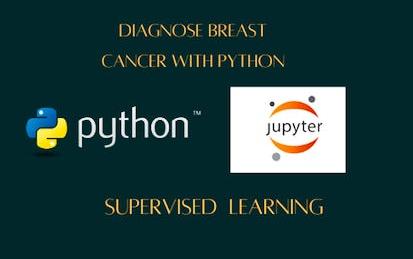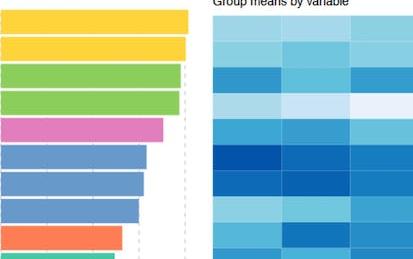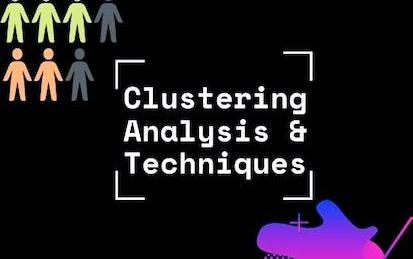

Our Courses

Causal Inference
This course offers a rigorous mathematical survey of causal inference at the Master’s level. Inferences about causation are of great importance in science, medicine, policy, and business. This course provides an introduction to the statistical literature on causal inference that has emerged in the last 35-40 years and that has revolutionized the way in which statisticians and applied researchers in many disciplines use data to make inferences about causal relationships. We will study methods for collecting data to estimate causal relationships.
-
Course by

-
 Self Paced
Self Paced
-
 13 hours
13 hours
-
 English
English

Applying Machine Learning to your Data with Google Cloud
In this course, we define what machine learning is and how it can benefit your business. You'll see a few demos of ML in action and learn key ML terms like instances, features, and labels. In the interactive labs, you will practice invoking the pretrained ML APIs available as well as build your own Machine Learning models using just SQL with BigQuery ML.
-
Course by

-
 Self Paced
Self Paced
-
 7 hours
7 hours
-
 English
English

DevOps on AWS: Operate and Monitor
The third and the final course in the DevOps series will teach how to use AWS Services to control the architecture in order to reach a better operational state. Monitoring and Operation are key aspects for both the release pipeline and production environments, because they provide instruments that help discover what's happening, as well as do modifications and enhancements on infrastructure that is currently running. This course teaches how to use Amazon CloudWatch for monitoring, as well as Amazon EventBridge and AWS Config for continuous compliance.
-
Course by

-
 Self Paced
Self Paced
-
 4 hours
4 hours
-
 English
English

Data Science in Stratified Healthcare and Precision Medicine
An increasing volume of data is becoming available in biomedicine and healthcare, from genomic data, to electronic patient records and data collected by wearable devices. Recent advances in data science are transforming the life sciences, leading to precision medicine and stratified healthcare. In this course, you will learn about some of the different types of data and computational methods involved in stratified healthcare and precision medicine. You will have a hands-on experience of working with such data. And you will learn from leaders in the field about successful case studies.
-
Course by

-
 Self Paced
Self Paced
-
 17 hours
17 hours
-
 English
English

MLOps Platforms: Amazon SageMaker and Azure ML
In MLOps (Machine Learning Operations) Platforms: Amazon SageMaker and Azure ML you will learn the necessary skills to build, train, and deploy machine learning solutions in a production environment using two leading cloud platforms: Amazon Web Services (AWS) and Microsoft Azure.
-
Course by

-
 Self Paced
Self Paced
-
 13 hours
13 hours
-
 English
English

ML: Diagnose the presence of Breast Cancer with Python
In this 1-hour long project-based course, you will learn how to set up and run your Jupyter Notebook, load, preview and visualize data, then train, test and evaluate a machine learning model that predicts if a patient has breast cancer or not.
-
Course by

-
 Self Paced
Self Paced
-
 2 hours
2 hours
-
 English
English

Orchestrating a TFX Pipeline with Airflow
This is a self-paced lab that takes place in the Google Cloud console. In this lab, you'll learn to create your own machine learning pipelines using TensorFlow Extended (TFX) and Apache Airflow as the orchestrator.
-
Course by

-
 Self Paced
Self Paced
-
 2 hours
2 hours
-
 English
English

Bitcoin Price Prediction using Facebook Prophet
In this 1.5-hour long project-based course, you will learn how to create a Facebook Prophet Machine learning Model and use it to Forecast the Price of Bitcoin for the future 30 days.
-
Course by

-
 Self Paced
Self Paced
-
 4 hours
4 hours
-
 English
English

Introduction to Generative AI - Italiano
Questo è un corso di microlearning di livello introduttivo volto a spiegare cos'è l'AI generativa, come viene utilizzata e in che modo differisce dai tradizionali metodi di machine learning. Descrive inoltre gli strumenti Google che possono aiutarti a sviluppare le tue app Gen AI.
-
Course by

-
 Self Paced
Self Paced
-
 1 hour
1 hour
-
 English
English

Tesla Stock Price Prediction using Facebook Prophet
In this 1.5-hour long project-based course, you will learn how to build a Facebook Prophet Machine learning model in order to forecast the price of Tesla 30 days into the future. We will also visualize the historical performance of Tesla through graphs and charts using Plotly express and evaluate the performance of the model against real data using Google Finance in Google Sheets. We will also dive into a brief stock analysis of Tesla and we will discuss PE ratio, EPS, Beta, Market cap, Volume and price range of Tesla.
-
Course by

-
 Self Paced
Self Paced
-
 4 hours
4 hours
-
 English
English

Visualizing Filters of a CNN using TensorFlow
In this short, 1 hour long guided project, we will use a Convolutional Neural Network - the popular VGG16 model, and we will visualize various filters from different layers of the CNN. We will do this by using gradient ascent to visualize images that maximally activate specific filters from different layers of the model. We will be using TensorFlow as our machine learning framework.
-
Course by

-
 Self Paced
Self Paced
-
 1 hour
1 hour
-
 English
English

Data for Machine Learning
This course is all about data and how it is critical to the success of your applied machine learning model.
-
Course by

-
 Self Paced
Self Paced
-
 12 hours
12 hours
-
 English
English

Semantic Segmentation with Amazon Sagemaker
Please note: You will need an AWS account to complete this course. Your AWS account will be charged as per your usage. Please make sure that you are able to access Sagemaker within your AWS account. If your AWS account is new, you may need to ask AWS support for access to certain resources. You should be familiar with python programming, and AWS before starting this hands on project.
-
Course by

-
 Self Paced
Self Paced
-
 3 hours
3 hours
-
 English
English

Machine Learning: an overview
The course provides a general overview of the main methods in the machine learning field. Starting from a taxonomy of the different problems that can be solved through machine learning techniques, the course briefly presents some algorithmic solutions, highlighting when they can be successful, but also their limitations. These concepts will be explained through examples and case studies.
-
Course by

-
 Self Paced
Self Paced
-
 3 hours
3 hours
-
 English
English

Explainable Machine Learning with LIME and H2O in R
Welcome to this hands-on, guided introduction to Explainable Machine Learning with LIME and H2O in R.
-
Course by

-
 Self Paced
Self Paced
-
 2 hours
2 hours
-
 English
English

Introduction to Generative AI
This is an introductory level microlearning course aimed at explaining what Generative AI is, how it is used, and how it differs from traditional machine learning methods. It also covers Google Tools to help you develop your own Gen AI apps.
-
Course by

-
 Self Paced
Self Paced
-
 1 hour
1 hour
-
 English
English

Preparing for DP-900: Microsoft Azure Data Fundamentals Exam
Microsoft certifications give you a professional advantage by providing globally recognized and industry-endorsed evidence of mastering skills in digital and cloud businesses. In this course, you will prepare to take the DP-900 Microsoft Azure Data Fundamentals certification exam. You will refresh your knowledge of the fundamentals of database concepts in a cloud environment, the basic skilling in cloud data services, and foundational knowledge of cloud data services within Microsoft Azure.
-
Course by

-
 Self Paced
Self Paced
-
 6 hours
6 hours
-
 English
English

Supervised Machine Learning: Classification
This course introduces you to one of the main types of modeling families of supervised Machine Learning: Classification. You will learn how to train predictive models to classify categorical outcomes and how to use error metrics to compare across different models.
-
Course by

-
 Self Paced
Self Paced
-
 25 hours
25 hours
-
 English
English

AI Workflow: Business Priorities and Data Ingestion
This is the first course of a six part specialization. You are STRONGLY encouraged to complete these courses in order as they are not individual independent courses, but part of a workflow where each course builds on the previous ones. This first course in the IBM AI Enterprise Workflow Certification specialization introduces you to the scope of the specialization and prerequisites. Specifically, the courses in this specialization are meant for practicing data scientists who are knowledgeable about probability, statistics, linear algebra, and Python tooling for data science and ma
-
Course by

-
 Self Paced
Self Paced
-
 8 hours
8 hours
-
 English
English

Web Applications and Command-Line Tools for Data Engineering
In this fourth course of the Python, Bash and SQL Essentials for Data Engineering Specialization, you will build upon the data engineering concepts introduced in the first three courses to apply Python, Bash and SQL techniques in tackling real-world problems. First, we will dive deeper into leveraging Jupyter notebooks to create and deploy models for machine learning tasks. Then, we will explore how to use Python microservices to break up your data warehouse into small, portable solutions that can scale.
-
Course by

-
 Self Paced
Self Paced
-
 15 hours
15 hours
-
 English
English

AI Materials
Learn about the materials that have advanced the performance of artificial intelligence, and the machine learning models that could help accelerate the design and development of novel materials. This course defines artificial intelligence (AI) as a machine to which some or all of the functions of the human brain have been delegated. It highlights the need, and explains in an easy-to-understand way how machine learning from artificial intelligence can dramatically accelerate the development of new materials.
-
Course by

-
 Self Paced
Self Paced
-
 50 hours
50 hours
-
 English
English

Artificial Intelligence Algorithms Models and Limitations
We live in an age increasingly dominated by algorithms. As machine learning models begin making important decisions based on massive datasets, we need to be aware of their limitations in the real world. Whether it's making loan decisions or re-routing traffic, machine learning models need to accurately reflect our shared values. In this course, we will explore the rise of algorithms, from the most basic to the fully-autonomous, and discuss how to make them more ethically sound.
-
Course by

-
 Self Paced
Self Paced
-
 8 hours
8 hours
-
 English
English

Attention Mechanism
This course will introduce you to the attention mechanism, a powerful technique that allows neural networks to focus on specific parts of an input sequence. You will learn how attention works, and how it can be used to improve the performance of a variety of machine learning tasks, including machine translation, text summarization, and question answering.
-
Course by

-
 Self Paced
Self Paced
-
 1 hour
1 hour
-
 English
English

Microsoft Azure Machine Learning for Data Scientists
Machine learning is at the core of artificial intelligence, and many modern applications and services depend on predictive machine learning models. Training a machine learning model is an iterative process that requires time and compute resources. Automated machine learning can help make it easier.
-
Course by

-
 Self Paced
Self Paced
-
 11 hours
11 hours
-
 English
English

Clustering analysis and techniques
In this 2-hour long project-based course, you will learn how to perform clustering (one of the core pillar of unsupervised learning) and its importance in machine learning, set up PyCaret Clustering module, create, visualize & compare Clustering algorithms all this with just a few lines of code.
-
Course by

-
 Self Paced
Self Paced
-
 3 hours
3 hours
-
 English
English



